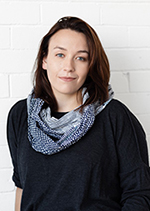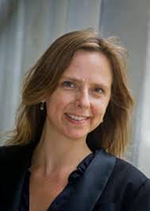
Written by Dr Hannah Gould (Cultural Anthropologist, University of Melbourne) and Dr Anna Halafoff (Associate Professor in Sociology, Deakin University).
From the fame of the Dalai Lama to the proliferation of mindfulness apps, Buddhism plays a prominent role in contemporary, transnational culture. Buddhist-inspired practices have come to shape a new ‘way of life’ for many Australians, not just among coverts, but also broader secular society. But how might Buddhism influence our ‘way of death’? This is the question investigated by the Dying ‘Buddhish’ in Australia research project, funded by the Contemplative Studies Centre at the University of Melbourne.
By investigating not just ‘Buddhist’ but ‘Buddhish’ [1] phenomena, the project aimed to encompass those who engage with Buddhism casually – and sometimes only at the end of their lives – outside of organised religious groups. This aligns with previous research that affirms the position of complex, diverse worldviews in Australia’s religious landscape [2]. For example, a nationally representative survey on the worldviews of generation Z, found substantive numbers of teens identify as spiritual (38%) [3]. Australians also turned to spiritual supports during the pandemic, including meditation, yoga, and being in nature [4].
The research team first undertook to ‘map’ of the landscape of Buddhish end-of-life and death care services in Australia. From this data, Tibetan Buddhism and the US-based Zen Hospice movement emerged as major influences. We also collected data via a survey (n=52) and qualitative interviews (n=15) with end-of-life and deathcare workers (including palliative care physicians, funeral directors, and spiritual care volunteers) located in Victoria, New South Wales, and Queensland. Respondents self-identified as engaged in providing Buddhist or Buddhish services.
The work uncovered a range of cases in which Buddhism and death come into contact within Australia’s deathcare system. This includes mindfulness training for patients coming to terms with terminal diagnoses, compassion cultivation training for new doctors in our medical schools, incense, chanting, and sutra readings at otherwise secular funerals, and Buddhist-informed bereavement counselling. From analysis of the survey and interview data, the research team categorised the key practices and values that make up ‘Buddhish’ end-of-life and deathcare in Australia:
- Holistic approach to care
- Honest confrontation with suffering and the inevitability of death
- Compassion
- Mindfulness, particularly of the senses and nature
- A non-proselytizing, ecumenical approach
These findings are currently being analysed and written up for discussion, alongside a public-facing resource for Buddhish end-of-life and deathcare service providers.
A major finding of the project has been the identification of a gap in Australia’s end-of-life and deathcare system when it comes to the support of ‘religious nones’ or ‘spiritual but not religious’ populations. From census data, we know this to be a growing group within Australia, at the same time as our population is ageing. Our research participants expressed concern for patients and families moving through healthcare and deathcare systems that cater to secular, Christian, or religious (but not spiritual) populations.
In line with these findings, from mid-2023, the Dying Buddhish in Australia project will be expanded with additional support from the Contemplative Studies Centre, to examine the systems and challenges associated with delivering quality spiritual care to ageing Australians within the context of a population with increasingly diverse worldviews.
References
- Oakes K 2015. The nones are all right: A new generation of believes, seekers, and those in between. Orbis Books.
- Bouma G, Halafoff A & Barton G. Worldview complexity: The challenge of intersecting diversities for conceptualising diversity. Social Compass. 2021 Mar 28;69(2):186–204. https://doi.org/10.1177/00377686221079685
- Singleton A, Halafoff A, Rasmussen M & Bouma G 2021. Freedom, faiths and futures: Teenage Australians on religion, sexuality and diversity. London: Bloomsbury.
- Halafoff A, Singleton A, & Fitzpatrick R. (2023). Spiritual complexity in Australia: Wellbeing and risks. Social Compass, 70(2), 243–262. https://doi.org/10.1177/00377686231162005
Hear more from Dr Hannah Gould about the Dying Buddhish in Australia project at the RePadd Seminar Series:



